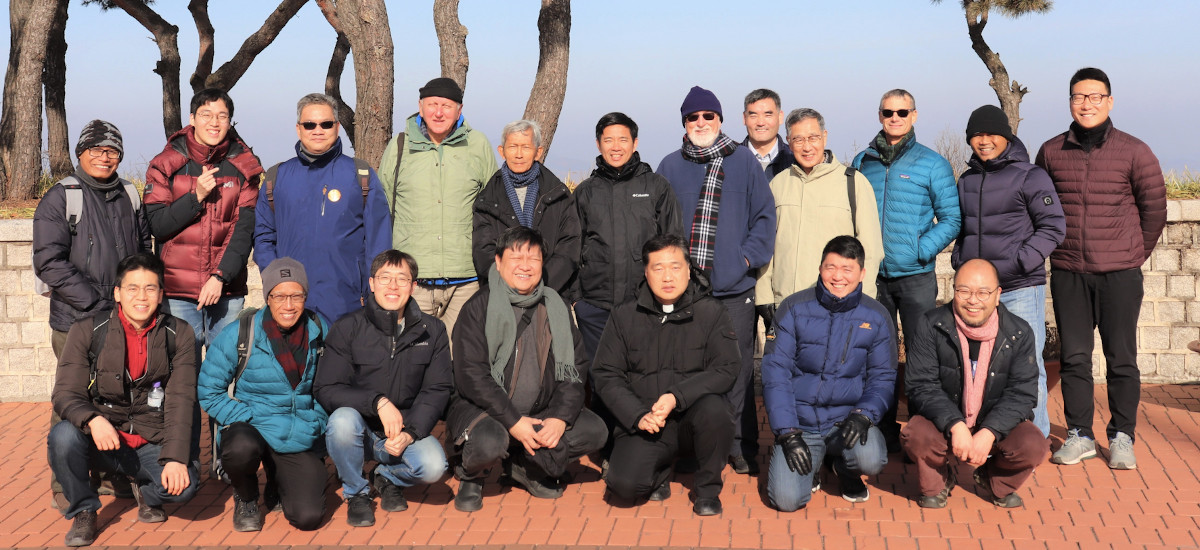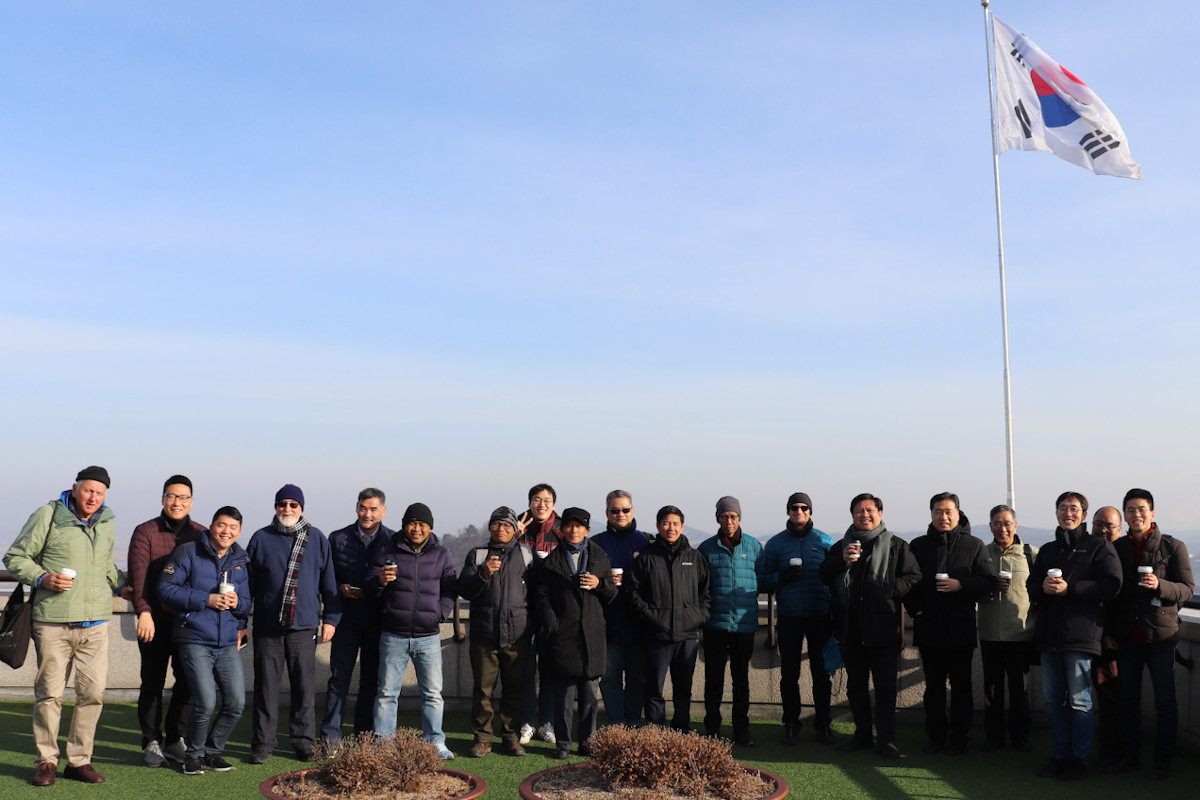
In addition to the novice directors from novitiates in Australia, Indonesia, Korea, Myanmar, Timor-Leste, Vietnam, and the Philippines – a joint novitiate with Japan, China, Malaysia-Singapore Region, and Cambodian Mission – the meeting was also attended by Fr Riyo Mursanto SJ, JCAP Delegate for Formation, and Fr Mark Ravizza SJ, Fr General’s Delegate for Formation from Rome, bringing his rich experiences of formation from the entire Society.
On the first day of the meeting, each novice director reported his respective novitiate situation, formation programmes, and his personal consolations and challenges. Listening and learning from each other’s experiences, they were deeply consoled in their important ministry of forming novices entrusted by the Society, and enriched by the best practices in each novitiate. Moving to the second day, Fr Ravizza delivered a talk on New Wineskins for New Wine: Hopes, Dreams and Best Practices of Jesuit Formation in light of the Society’s Universal Apostolic Preferences (UAP). All the directors were enlightened to consider how to creatively implement the UAPs in novitiate formation. The day concluded with spiritual conversations on the topic. The third day was highlighted by a presentation of Korean Fr Denis Kim SJ on Cultural Diversity and Jesuit Formation. The topic was appropriate to novitiate formation, especially to the Philippine novitiate, since it is joined by different cultures from China, Cambodia, Japan, and Malaysia-Singapore. Enlightened by Fr Kim’s talk, the directors were greatly aided in factoring cultural diversity into novitiate formation and how to face the challenges arising from it.

Refreshed from a day of outing, the participants were ready to move to the final two days of the meeting, which were devoted to general discussions on emerging issues for better collaboration. A common interest that emerged was the multi and intercultural reality in novitiate formation. The novice directors were concretely helped and enriched by the outcomes of the novices’ spiritual conversations on the multi/intercultural community in the Philippine novitiate. (Fr Chris Dumadag SJ, Master of Novices in the Philippines, had asked his novices to do spiritual conversations and to send their reports simultaneously to the meeting in Korea.) The current formation of the Philippine novitiate seems to be a good model for joint novitiates in a multi/intercultural setting, but not without challenges. What will be the future structure for such an international novitiate formation at the level of the conference? Is there a need to form a “JCAP Novitiate”? How do we proceed to more concrete and conducive collaboration among the novitiates in JCAP? The novice directors acknowledged that these questions still need further prayer and discernment.
The final day was spent in quiet prayer, examen of the entire meeting, as well as spiritual conversations where each one expressed the consolations bestowed by the Lord throughout the meeting and profound gratitude for the gathering, particularly for the host Province of Korea. (Paulini Zhai)






